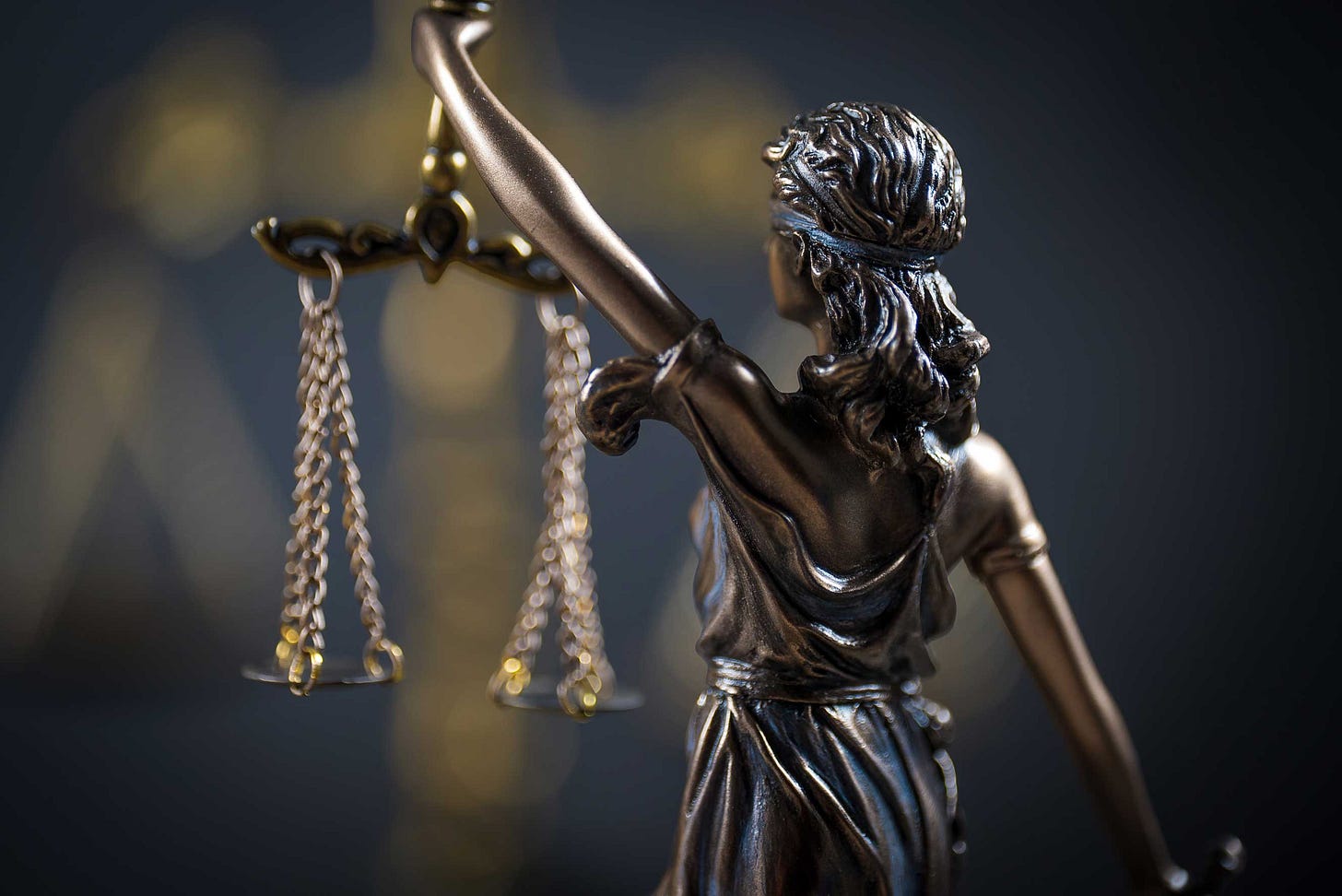For this is the covenant that I will make with the house of Israel after those days, declares the Lord: I will put my laws into their minds, and write them on their hearts, and I will be their God, and they shall be my people. - Hebrews 8:10.
Belief and action are impossible to separate; people always (or at least nearly always) act upon those things they believe. If a man rationally or otherwise believes the moment he drives out onto the road, he will get into a deadly wreck, we can expect him to act accordingly. Such a man would never drive a car; now, a man who firmly believes he may die in a car accident would perhaps drive, but very carefully. The one thing we could never expect someone to do is abandon their beliefs when they get into the car, rejecting the idea that their beliefs should govern their actions. Nevertheless, it is a prevalent idea in politics today that there is a "separation" of Church and State. There are all about us evil "Christian Nationalists" who seek to turn America into a Theocracy. A quick note, Theocracy means essentially “rule by clerics” so having a Christian in a place of authority, and having a Christian law, is in no way “theocratic.”
I find the concern over such separation between Church and state to be largely irrational. The relationship between belief and action already exists and certainly ought to be the relationship Christians have with law and governance. Scripture tells us that eternity is placed in our hearts (Ecclesiastes 3:11), and we know that there is more than the material world. Mankind knows and fundamentally believes in some level of the supernatural, and we act upon those all the time. As Christians, we should not shy away from this; we hold beliefs not only about things that are but things that ought to be!
There is nothing in Scripture that contradicts the notion that man can contribute to the law. More importantly, we are not told anywhere by Scripture or tradition that Christianity cannot inform the law; one ought not to coerce people into Christ, but legislation is a separate matter. There is much reference to the idea of the "old law," the law of Moses, but the legislative process? There is not much in Scripture to indicate that Christians should have no role in formation. Rather, St. Paul clearly demonstrates that all governmental authority comes from God. Many of the Church Fathers held similar stances that Christians are not to openly rebel but also to remember that our ultimate allegiance is to God. This topic is one being hotly debated right now, with the recent flurry of executive orders and the overall recent transfer of power. Whenever conservatives seem to be in power, there is an implicit unwillingness to change the law in favor of our ownpolicies. For some reason, Christians (who are typically conservative) are the ones arguing strongly for the separation of Church and state.
The radical liberals do not have this problem; they are in no way shy about passing legislation to enshrine their religious beliefs. Their anti-natalism and sacramental abortion are believed with moral certainty and religious fervor. Moreover, they have an understanding that the law is a teacher and is to be used like a shepherd crook.
As such, many might say that morality should not be legislated; however, I find that to be a false notion, as morality is legislated very regularly. Two great legal thinkers, St. Thomas Aquinas and Sir William Blackstone, argue that very notion; they say that law should curb activity towards righteousness. Essentially, the law puts up social and moral bulwarks and boundaries within which society might live freely and flourish. Everyone realizes Murder and theft are bad, and that is morality that we legislate; perhaps a better example would be laws against profanity; there is nothing wildly wrong about swearing in terms of public life other than it is degrading.
Thus, legislators, informed by their moral sensibilities, passed laws banning profanity in public; only recently have these laws gone unenforced. The end purpose of the law is to create a flourishing society, and without God, there is no such thing as a flourishing society because society cannot be rightly ordered. When questioned by Pharisees, St. Peter declares, "We must obey God rather than men." Of course, Christ also tells us that we ought to "render to Caesar what is Caeser's." However, this is followed up by saying we must also give God his dues, and Scripture abounds with directions on how Christians ought to deal with the rulers of this realm. Often, we are instructed to pray and to make intercession for the leaders of our nation (1 Tim. 2:1-2). We are commanded to do so that we might live godly and peaceful lives. Psalm 33 tells us that the nation which calls the LORD its God is blessed; we are also told that through the law, we know that we sin. Sin is what separates us from God, I believe it is in this idea that we can see some semblance of legislated morality. From these passages, I believe we can find a justification for Christians to intercede in the law and put forward just legislation.
Keep reading with a 7-day free trial
Subscribe to THE ABBEY to keep reading this post and get 7 days of free access to the full post archives.







